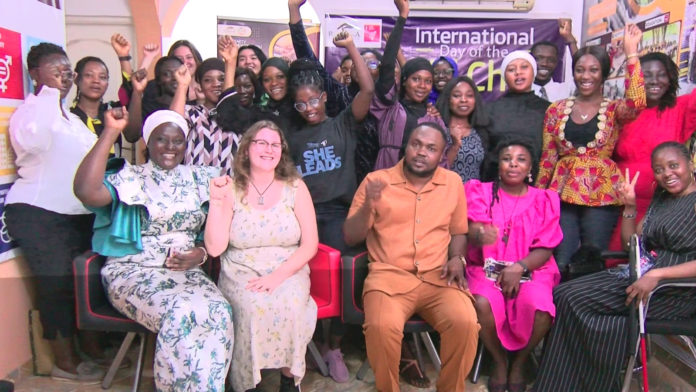On the occasion of the International Day of the Girl Child, observed annually on October 11th, the Renel Ghana Foundation hosted a thought-provoking roundtable discussion in Accra.
The event brought together passionate young women who called for increased investment in the girl-child as a means to boost societal development and gender equality.
The International Day of the Girl Child serves as a global reminder of the unique challenges faced by girls in various facets of life, encompassing education, health, safety, and equal opportunities.
To mark this significant day, Renel Ghana Foundation organized the roundtable discussion, gathering a diverse panel of experts and advocates to deliberate on strategies to enhance the well-being of girls and promote their rights.
Bernice Ocran Dodoo, the Programmes Officer at Renel Ghana Foundation, said the rationale behind the event is to make the issues of the girl child a priority.
“As we mark the International Day of the Girl, we organised a panel discussion focused on strategies to enhance the visibility and well-being of our girls. Girls constitute a significant portion of our population, and neglecting to invest in their future would hinder our nation’s development. It is imperative that we prioritize their well-being and empowerment for the betterment of our society” she said.
The panel discussion centered on the theme, “The Importance of Investing in Girls’ Rights for Societal Progress.”
The panelists included Joana Ankomaa Addey, a communication officer at SEND Ghana; Princess Lovia Tetteh, Executive Director of Love Aid Foundation; Barikisu Mahei, an aspiring assemblywoman for Adjei Kojo electoral area; Lorenda Qauye, a fashion designer; and Rufai Asiyi, a former SRC President of Islamic University.
During the discussion, participants highlighted the critical need to involve not only girls but also boys in conversations about empowerment and gender equality.
Morgan Phares, a participant, emphasised, “We need to empower girls more, give them more visibility, more opportunities, and more access to education, and I think that can be achieved when we work together.”
Furthermore, Sara Kekeli Akunor, a student at the University of Ghana, drew attention to the importance of inclusiveness, especially for physically challenged children.
She said, “The community needs to be educated on physically challenged children. They should not be kept indoors, and they are supposed to engage them in everything that they do.”
As the world celebrates the International Day of the Girl Child, the discussions at the Renel Ghana Foundation roundtable serve as a poignant reminder that investing in the girl-child is not only a matter of gender equality but also a strategic imperative for the progress and prosperity of society as a whole.
The collective call for action resonates with the words of Dr. Kwegyir Aggrey: “If you educate a man, you educate an individual, but if you educate a woman, it’s a whole nation.”


